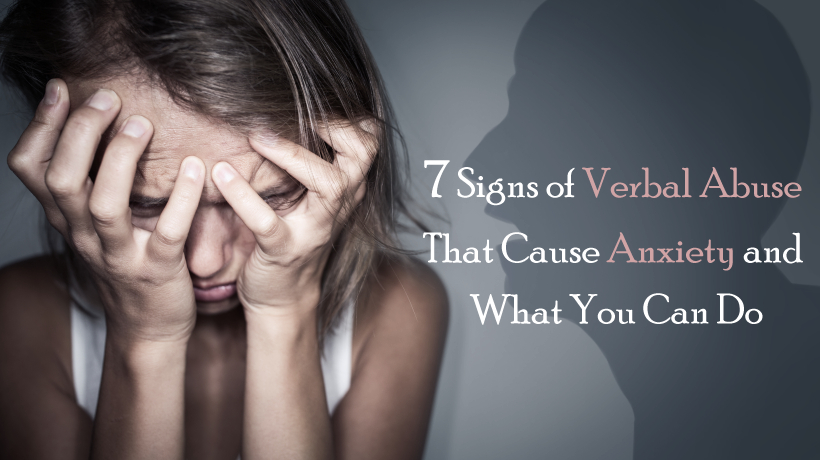It’s never enjoyable to have someone yell at us, especially if we feel it is unwarranted. If this harsh type of communication is repetitive, it can take a toll on our confidence and comfort, and even lead to feelings of anxiety. This type of undeserved, angry insulting might just be verbal abuse. If you think you are experiencing this type of abuse, it’s not something to try to ignore or hope that it goes away. Instead, you need to take action and demand the appropriate behavior you deserve from friends or loved ones. Here are seven signs of verbal abuse that cause anxiety and what you can do to address it.
You’re being called names
One sign of verbal abuse is that your friend or loved one is hurling insults that involve hurtful and cruel name-calling to inflict pain. These are meant to lower your confidence, and particular words even used passively, can cause severe damage to your self-esteem and emotions. This can act as a domino effect, causing disruptions in the victim’s work, relationships and home life, even years later. Treat this situation as you would with any bully, and make it clear that name-calling is unacceptable, unfair, and cruel behavior. Set this boundary so the other knows they cannot continue to disrespect you.
You feel like you need to walk on eggshells around them
If you feel like you need to be particularly careful around someone for fear of “setting them off,” this is a sign of verbal abuse. This type of approach stems from anxiety that your friend or loved one will say something negative or hurtful to you. Set aside a time to speak to them about why you feel uneasy and what patterns of behavior are making you feel this way. Make it clear that this behavior needs to change.
They make jokes at your expense
If your friend or loved one continues to make hurtful jokes about you that don’t make you feel good about yourself or your relationship, this is a sign of anxiety-inducing verbal abuse. The excuse of “just kidding” on the part of the abuser may be thrown around in a manipulative way to gain control over the situation. Make it clear to them that this is unacceptable behavior, and that the jokes are clearly not being made in good humor.
They criticize or embarrass you in front of others
Another sign of verbal abuse that can cause an emotional response is if someone criticizes or embarrasses you frequently in front of others. If behavior like name-calling continues in public, then it’s a huge red flag because they mean to induce feelings of inferiority and anxiety. You can address this by pointing out your abuser’s behavior in front of others and turn the table on them. Make it clear that you will not stand for being made to feel embarrassed, and that this isn’t normal or healthy.
They snap at you A LOT
While it’s normal to lose one’s patience every so often, frequent angry snaps are another red flag. The best way to deal with this is by addressing this type of communication as soon as it occurs in a recognizable pattern, and to state that this pattern is unacceptable and will not continue. Make it clear that you will not respond to this communication.
They use threats to intimidate
If a threat made by your friend or loved one causes you to change behaviors or to feel on guard in the relationship, it’s a sign of verbal abuse. No threat should be taken lightly, and this type of behavior is overstepping boundaries defined by respect and mutual support. To address this behavior, tell them that you do not respond to threats and that they cannot try to impose control over you in this way. Take back your power by refusing to react to these threats, as you give them power when they successfully induce anxiety.
Your feelings are neglected
A major sign of verbal abuse is that your partner reacts and communicates in a way that fails to take into consideration your emotions. If you feel anxiety because of your partner’s treatment towards you and they fail to listen to your concerns, they are neglecting your feelings. Shut this inconsiderate behavior down by leaving or refusing to engage with them if they continue to behave in a way that is not considerate or respectful.
Sources:
https://ravishly.com/verbal-abuse-what-it-and-how-respond
https://www.elitedaily.com/p/9-signs-your-partner-is-verbally-abusive-according-to-experts-so-be-careful-11455306
https://www.learning-mind.com/verbal-abuse-anxiety/



